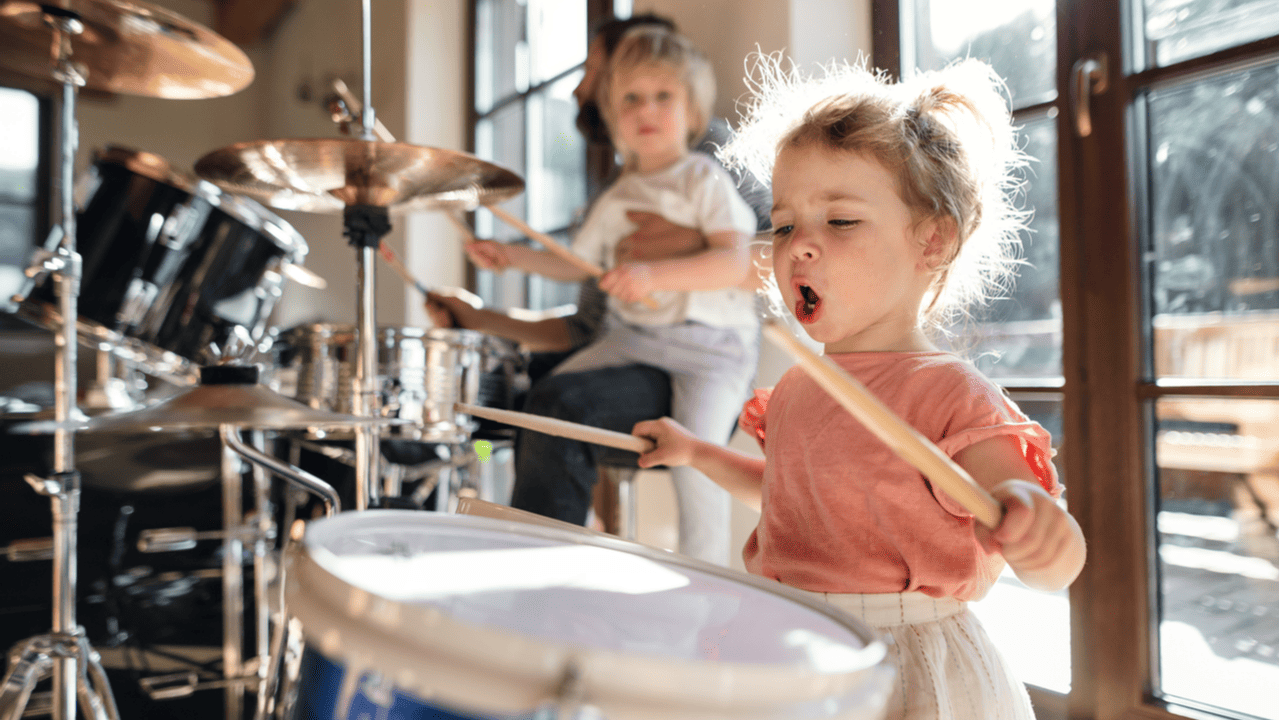 | | | | About the Author Melissa Weekes is a Product Development Specialist. Prior to joining Great Kids® in 2018, she worked as a home visitor with Public Health Services where she used the Growing Great Kids® Curriculum. Melissa lives in Nova Scotia, Canada, with her husband and enjoys any opportunity to be creative! |
“Can I play the drums again?” they asked. Without giving it a moment of thought, a “no” came out of my mouth. It wasn’t the most convincing ‘no’ ⸺ more of a feeble reaction to the extra effort this activity would require when my patience was already thin. To this child, that no from their warm-hearted aunt sounded negotiable, and the lure of the shiny drum kit won over. Erratic thuds of drums and crashes of cymbals filled the air as I sank into the couch, defeated, wondering why I’d said no in the first place. Kids love playing the drums when they come to visit. What harm would it do to let them play one more time? Not mustering the energy to enforce my decision, I scolded myself for not following through on my answer.
In this moment, I’d forgotten that being a perfect aunt was unrealistic and unattainable. As Rachel mentioned in last month’s blog, real life is messy! Holding myself to the idea of never making a misstep as an aunt had set me up to fail. None of us are perfect, especially on days when our energy is depleted, so why don’t we give ourselves more grace? The truth is that we’re often our harshest critics.
According to researcher Brené Brown, this unhealthy striving to be perfect is driven by our concern for what other people think of us.1 Instead of pursuing being the best person we can be and learning from our mistakes, we aim for this unattainable flawless façade that inevitably cracks every time we fall short, leaving us feeling deflated.1
It’s not that these expectations come from others. They’re expectations we THINK others hold of us!1 We assume we know what other people are thinking, and in doing so, we create a self-destructive world in our minds that’s disconnected from reality and impossible to live up to.1 Our self-worth becomes wrapped up in our perception of what others think of us or how they might judge us instead of in the value of being ourselves, a work in progress.1
When we expect ourselves to be perfect, life is less enjoyable. Rather than allowing ourselves the freedom to learn new things and being okay with not knowing everything, we hide behind the fear of, not wanting to look bad.1 According to researchers, trying to maintain perfection actually pushes people away from us.1
I don’t know about you, but when it comes to the people around me, I don’t expect THEM to be perfect. So, it shouldn’t feel like such a failure when WE mess up! For example, have you hit send on an important email before adding the attachment? Have you made a judgment about a situation before getting all the facts? What about saying something you regretted and having to apologize after the fact? We’ve all been there. We all try to do our best, but as Alexander Pope penned in the 1700s, “to err is human.”2
Just as no parent (or aunt!) is perfect, no professional is perfect, and no person is perfect!3,4 Of course, not seeking perfection doesn’t mean we don’t hold ourselves or others accountable or clearly communicate our expectations. At Great Kids, we often use a quote from Brené Brown: “Clear is kind. Unclear is unkind.”1
When we get clear about our own boundaries and communicate our expectations with others, we set ourselves and our relationships up to be healthy and successful.1
So I invite you to join me in letting go of any unrealistic expectations and embracing reality. We can try our best, learn from our mistakes, and give ourselves and others grace. As the rest of the saying goes, “to err is human, to forgive divine.”2 When we’re generous with ourselves and others, life can get a little lighter and a whole lot more fun. Who knows, it might even include banging on drums one more time!
References
1. Brown, B. (2021). Atlas of the heart: Mapping meaningful connection and the language of human experience. Random House.
2. Croskerry, P. (2010). To err is human⸺and let’s not forget it. Canadian Medical Association Journal, 182(5), 524. https://doi.org/10.1503/cmaj.100270
3. Siegel, D. J., & Bryson, T. P. (2021). The power of showing up: How parental presence shapes who our kids become and how their brains get wired. Ballantine Books. 4. Zorrah, Q. (2021, September 28). How to turn mistakes during a home visit into opportunities for deeper relationships. Start Early. https://www.startearly.org/post/how-to-turn-mistakes-during-a-home-visit-into-opportunities-for-deeper-relationships/


